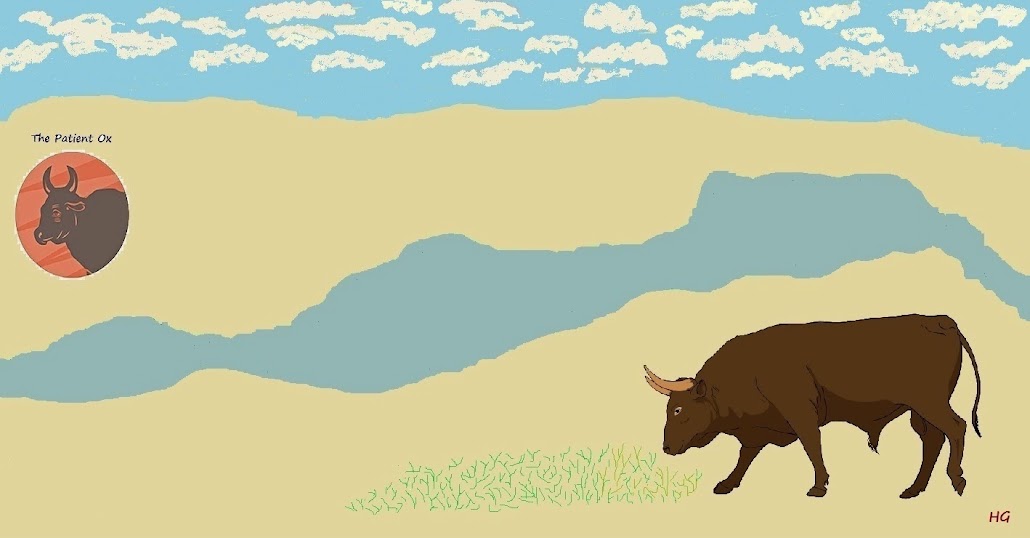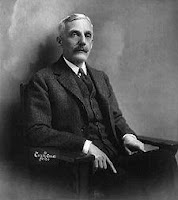
[Wisdom from the Dog]
---------------
Gareth Cook (The Boston Globe - June 5, 2011)
IT’S ABOUT time the dog got a little more respect.
If you’ve ever owned a dog, be it a prize purebred or a lovable mutt, then you know that they are smart. Well, now science is catching up.
In some ways, it is increasingly clear, dogs can be even more intelligent than chimpanzees, who sit much closer to humans on the evolutionary tree. And this remarkable gift, according to a fascinating new theory, reveals something profound about the origins of intelligence — and, possibly, the origins of our own humanity.
For many decades, the dog received relatively little scientific attention, explains Brian Hare, the Duke scientist who has offered the new theory. For Hare, this changed after a conversation with his academic adviser, scientist Michael Tomasello. The two were discussing the limits of chimp intelligence.
Although chimps are considered socially sophisticated creatures, they struggle to understand even basic human gestures like pointing.
Young children follow a pointed finger, and know that the thing being pointed to is important. But this requires tremendous cognitive leaps. It requires knowing that there is another animal out there with thoughts of its own. That this other animal knows something that I don’t. That it is trying to communicate to me. The fact that even our closest living relatives have trouble doing this suggests its difficulty.
Yet Hare had a thought: My dog can do that.
Indeed, back in his parents’ garage, with a video camera running, Oreo and Daisy easily passed the test. Hare placed two cups on the floor, one with a treat underneath. He pointed to the right one, and a dog went to get the treat.
Since then, researchers have found many ways in which dogs outsmart chimps. In another experiment, there are two humans, one with a blindfold: Which one do you beg for food? Dogs get that. Or if there is a forbidden treat, dogs are more likely to understand they should steer clear if a human’s eyes are open.
Where, Hare wondered, do these abilities come from?
The answer came from an amazing experiment in Siberia. In 1959, Russian scientist Dmitry Belyaev set out to understand domestication. He gathered wild foxes, and separated them into two groups. One, he bred randomly, as a control. The second, he bred for kindness. Only the foxes that were the nicest to humans — the ones that would approach a person without fear or aggression — got a chance to mate.
By the time Hare visited Belyaev’s old compound in 2003, this selection process had been repeated over many, many generations. He tried his two-cup test with the wild group, and they failed. The nice foxes, though, were just like the dogs — they understood pointing. They had leapt past chimps.
Hare suggests that dogs went through essentially the same process, over a much longer period. Many thousands of years ago, wolves began to approach human settlements, looking for scraps. Some of those wolves would been less fearful, less aggressive. These animals were rewarded with more food. Over time, these wolves became our dogs.
To understand what makes this insight so important, with implications for our own origins, remember that Belyaev’s foxes, and the early dogs, were not selected for intelligence, but for niceness. The animals became nice, and intelligence followed naturally.
Chimpanzees are clearly smarter than dogs in many ways, says Hare, who heads the Canine Cognition Center at Duke University. But chimps are also emotionally volatile, so much so that they can find it hard to cooperate, even when it’s clearly in their own interest. A chimp’s social abilities have been circumscribed by its emotional explosiveness.
Human intelligence is often described as a steady accumulation of new kinds of smarts, as the brain expanded. But Hare has come to believe this would not have been possible unless our species first made an emotional breakthrough — the ability to tolerate each other, to be kind enough, and patient enough, that we could cooperate more deeply. This led to language, tools, and civilization.
It’s an insight that Hare would not have had were it not for dogs. And so it deserves to be dubbed the Wisdom of the Dog: To be smart, first play nice.
-----------------------------------
Gareth Cook can be reached at cook@globe.com








